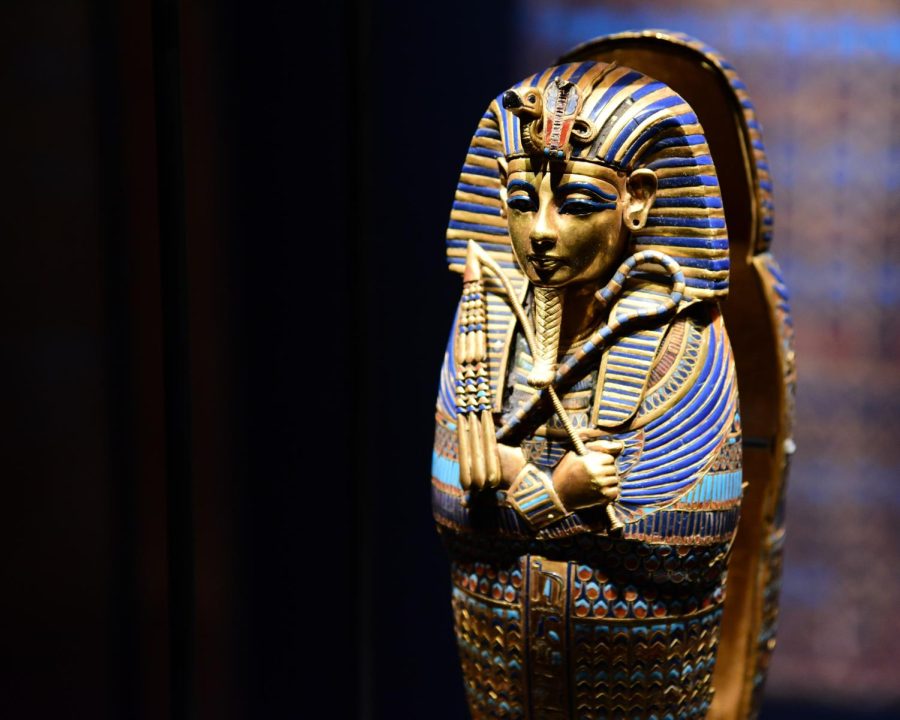The discovery of Pharoah Tutankhamun’s (a.k.a. King Tut’s) tomb in 1922 started a global spiral of Egyptomania that waned at times but remains to this day. Fanaticism prevails, whether it’s 1920s Egyptian revival fashion or a tacky Egyptian god costume.
In the 1980s, Egyptomania had its second coming and introduced us to the never-to-be-forgotten song “Walk Like an Egyptian” by The Bangles. The music video features imagery of many different people doing the Walk Like an Egyptian dance; businessmen on their way to the office, a man cleaning a window, even a dog. The band’s members dress up in “ancient Egyptian” costumes and dance to it themselves.
I am Egyptian, and this song has led to several instances of me being told to walk like an Egyptian. Someone I knew in middle school would do the dance every time I walked by. When I wear a gift from my aunt in Egypt, called a galabeya, a traditional Egyptian dress, I get lots of questions about it, such as, “Why are you wearing a tunic?” Although people think they know and love Egyptian culture and fashion, they know next to nothing about it, which shows a distinct lack of respect.
While there is undoubtedly a difference between cultural appropriation and cultural appreciation, these are examples of cultural appropriation. All it comes down to is how people were posed in ancient Egyptian art pieces being turned into a joke, without even considering the cultural significance of such things. The people who choose to “walk like an Egyptian” are the same people who ask me if any of my family members are terrorists because they think it’s funny.
It all boils down to this: if you want to make fun of a culture, at least know about the culture first. Being at least a little aware of all that you need to learn makes you seem like you’re not culturally appropriating on quite as grand a scale. If you want me to put up with your name-calling and costumes, you should at least first learn about Egypt. A quick Google search can tell you that Egyptians invented the 365-day calendar and certain surgical tools and that Egyptians speak a specific dialect of Arabic, as Egyptian is now a lost language.
While it’s essential to have a sense of humor and to be able to laugh about yourself sometimes, it’s not funny when the same offensive jokes are made at your, and your relatives’, expense over and over. It’s especially unfunny when the people joking are not at all interested in learning more. Being able to laugh with people can be about closeness, familiarity, and respect, or it can be about shame and ignorance.
So don’t show me how to walk like an Egyptian; I already know how.












